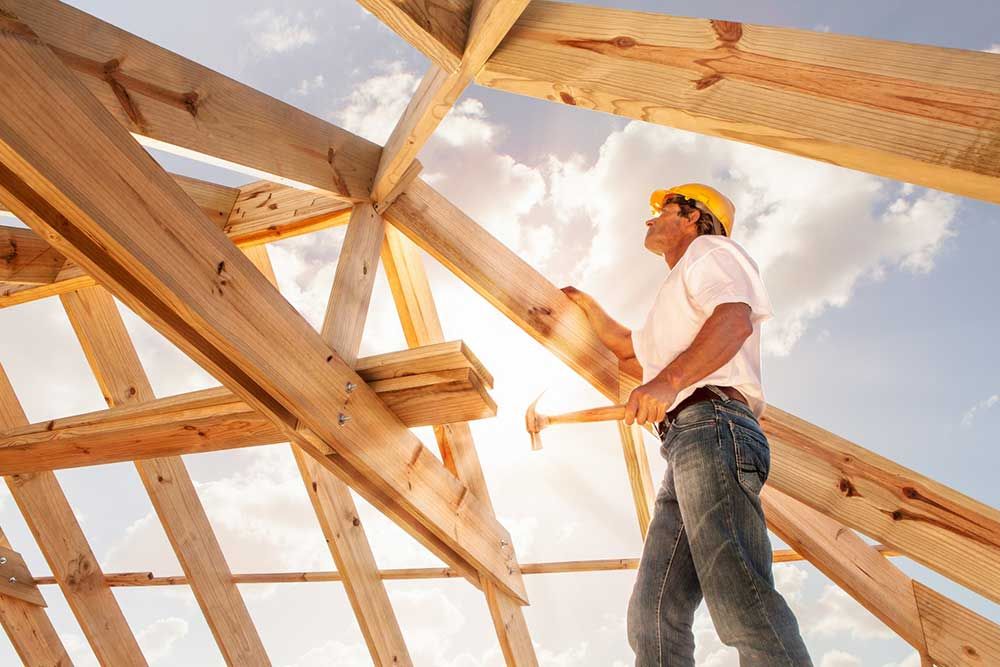Building a house requires significant investment, time, and planning. For the space to feel like home and bring one’s vision to life, a home builder’s assistance is necessary. These experienced professionals will help one make informed decisions about layouts, materials, and costs, ensuring the home building project aligns with one’s budget and preferences. But, given the number of options available, it is important to carefully consider various factors to choose the right home builder.
1. Research well
Hiring the right builder starts with researching the available options in one’s area. A simple browser search with the term “house builders in my area” will pull up a whole list of potential contractors for the project.
Take some time to create a checklist for the home, including features and aspects that one envisions in one’s dream home, including the architectural style, size, location, and more. Compare them with what the builders offer to shortlist a few options. Then, reach out to them to schedule an appointment to ask for more information or to discuss the project. This is also a good time to evaluate their communication style and see if their vision aligns with one’s expectations.
2. Set a budget
Building a home is a significant financial commitment. So, it is important to set a clear and realistic budget and pick a home builder who can work within the same to reduce the risk of unexpected surprises.
This budget will not only outline the project’s scope but also define what architectural and design features one can add to one’s home. A home builder with budgeting experience can help with strategic planning and resource management to optimize budget efficiently.
3. Look for experience
Not all home builders offer the same services – some may be very experienced in certain construction styles, while others may just be beginners in the industry. Ideally, one wants to work with a home builder who has several years of experience under their belt to ascertain their ability to complete the project successfully and within the deadline. It’s best to opt for a professional who has worked with architectural styles similar to one’s requirements. Experienced builders are also better equipped to handle potential challenges that may arise.
Ask the builder about previous projects they have worked on. Request details like photos or videos of their previous projects or consider visiting their completed homes. This is also a good way to assess the quality of their work and make an informed decision.
4. Check reputation and reviews
Beyond their experience, a builder’s reputation in the industry is a crucial factor influencing one’s decision-making process. This can be determined by reading online reviews or speaking to their previous clients. Look at what others say about a given builder and their work ethic on reliable websites or by checking with the local home builder’s association.
5. Consider licensing, bonding, and insurance
Home building contractors are expected to have the right documents to operate safely in the field. After shortlisting a few options, one can verify their licensing through the State Licensing Board for General Contractors.
Additionally, ensure the builder of one’s choice is bonded and carries liability and workers’ compensation insurance. These will safeguard the client in the event of any disruptions in the project or any property damage. Before signing any contract with the builder, ask for any proof of insurance.
6. Understand the fine print
Do not sign any contract before carefully reading the fine print. Typically, custom home builders work on either fixed-price contracts or cost-plus contracts. Speak to the builder to make sure one understands how their contract works and to determine the financial arrangements required for the same.
If required, seek a professional’s help to understand the rest of the fine print as well. This will help one clarify the builder’s responsibilities and how the project will be carried out, as well as cover important details like permissions, progress payments, change orders, delays, and warranties.
7. Ask for warranty information
When selecting a builder, it is also important to consider the warranty they offer on their homes. Ideally, the builder should offer a comprehensive warranty that provides reliable protection for the project, especially the structural components, systems, and appliances. Ask for information about the warranty coverage, the duration, and other details. If possible, review the policy details with a lawyer to ensure one understands all aspects of the plan, what it covers, and how to use it.
8. Don’t decide based on price alone
It is normal to feel compelled to go with the contractor offering the cheapest rate, but this could be a huge mistake. A builder that offers lower-than-average prices may be using poor-quality materials, hiring inexperienced workers, or working with an incomplete proposal that does not account for all the project costs. In worst scenarios, they may also be going out of business soon and do not aim to be around to ensure warranty coverage on their work. All of these issues could lead to significant problems in the future.
So, instead of just looking at the price, also consider the builder’s experience and the quality of the work to make an informed decision. Investing in a reliable and reputable professional or company can help save significantly in the long run by reducing the risk of mistakes and delays.
